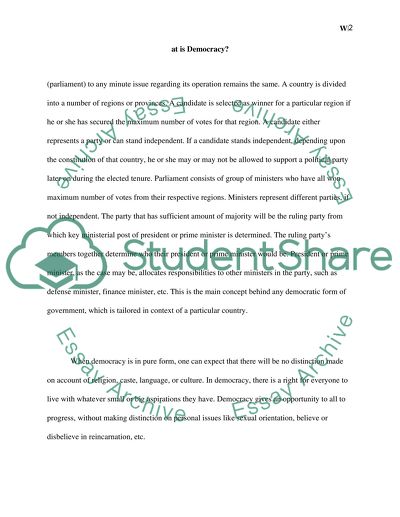Cite this document
(“What is democracy Essay Example | Topics and Well Written Essays - 1500 words”, n.d.)
Retrieved from https://studentshare.org/politics/1426560-what-is-democracy
Retrieved from https://studentshare.org/politics/1426560-what-is-democracy
(What Is Democracy Essay Example | Topics and Well Written Essays - 1500 Words)
https://studentshare.org/politics/1426560-what-is-democracy.
https://studentshare.org/politics/1426560-what-is-democracy.
“What Is Democracy Essay Example | Topics and Well Written Essays - 1500 Words”, n.d. https://studentshare.org/politics/1426560-what-is-democracy.


